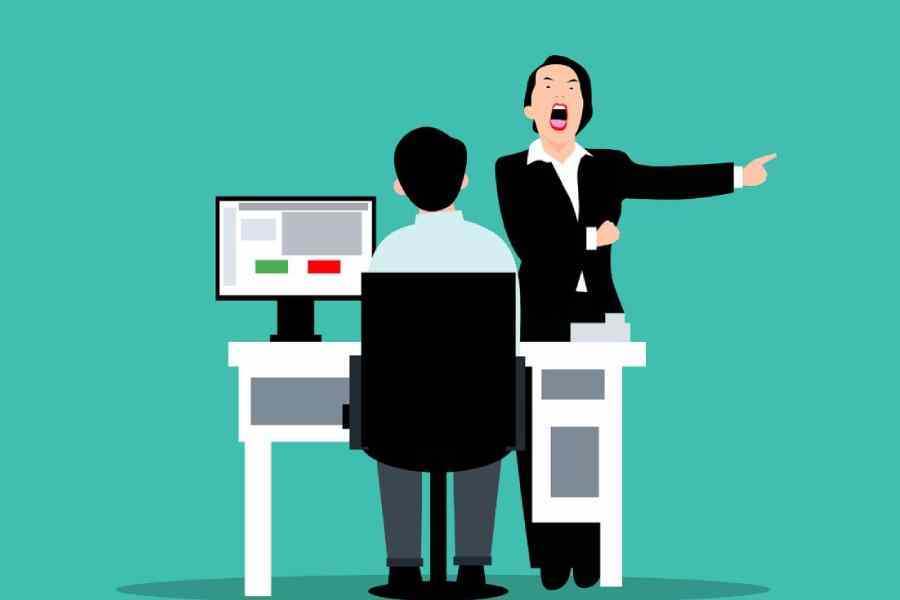Life lesson
Sir — ‘Aapnar byabohari aapnar porichoy’ — this is a life lesson Calcuttans travelling on buses are well-versed with. But the message that is often inscribed on the walls of Calcutta buses is lost on most. Tokyo has thus come up with an ordinance to protect service industry staff from kasuhara — the poor behaviour of customers. Perhaps India should follow suit and bring in regulations mandating that not just customers but also employers behave amicably with employees. After all, a kind word can help a population that is plagued by rising unemployment and constant financial stress.
Varun Soman, Delhi
Freed voices
Sir — The recent ruling of the Supreme Court affirming the right of journalists to criticise the government without retaliatory action being taken against them comes as a breather for scribes who have not jumped on the pro-government bandwagon (“Thank you”, Oct 8). But doubts remain about how far this judgment will be applicable in reality. The one-man show that the Indian government has become over the past decade offers little assurance regarding the implementation of the apex court’s verdict.
Even before the Bharatiya Janata Party’s stint at the Centre since 2014, the media was not free of governmental control. Narendra Modi’s rule has only exacerbated the stifling of the press that the Congress had started. It is ironic that a government led by a ‘popular’ prime minister should be wary of the media. Modi might claim that India is the mother of democracy but this is far from the truth.
Avinash Godboley, Dewas, Madhya Pradesh
Sir — The Supreme Court ruling stating that the government cannot pursue sedition charges against journalists merely for critical coverage has been welcomed by the International Press Institute as an important pushback against India’s increasing legal harassment of the press. A citizen has the right to criticise or comment on the measures undertaken by the government as long as the person does not incite violence. This principle applies to journalists too. Journalists must have the freedom to scrutinise the actions of those in power.
The police in India have resorted to using stringent charges such as sedition and the Unlawful Activities (Prevention) Act to deter journalists from criticising the government. India is ranked 159 out of 180 nations in the press freedom index. This is a marker of the declining press freedom in the country. The Union government should act on the Supreme Court’s verdict and align laws regarding press freedom with international standards.
S.S. Paul, Nadia
Sir — The press is the fourth pillar of democracy and it must be able to freely criticise the government regarding the latter’s policy failures and administrative lapses. However, the current dispensation heavily punishes media houses for criticising it. This is unfortunate.
Aranya Sanyal, Siliguri
Sir — The Supreme Court upheld the right of the media to hold the government accountable. The freedom of the press falls under Artice 19(1)(a) of the Constitution but is violated repeatedly by the government and other Central agencies. The arrest of the founder of NewsClick, Prabir Purkayastha, under the draconian UAPA is just one example of such violations.
Strengthening legal protection for the media and formulating a regulatory framework to address its vulnerability will go a long way in securing its democratic rights.
Prasun Kumar Dutta, Kharagpur
Tone change
Sir — The Maldivian president, Mohamed Muizzu, made an official visit to India to sign a currency sway arrangement and obtain a line of credit from the Reserve Bank of India (“Muizzu drops consulate hostility”, Oct 8). This shows the Maldives’ dependence on India. Despite Muizzu’s initial anti-India stance, he seems to want to make amends now in order to secure financial assistance.
Earlier, several Maldivian ministers had criticised India and its prime minister, Narendra Modi, and many Indian tourists had shunned travelling to the island nation in response to this. There was an informal attempt by many Indian influencers to boycott the Maldives. This had dealt the Maldives’ tourism sector a severe blow. India is a strong power in the Global South and Malé must repair its relations with New Delhi.
Kirti Wadhawan, Kanpur
Sir — Mohamed Muizzu seems to have realised that the Maldives cannot afford to burn bridges with one of the world’s fastest-growing economies. On his first official visit to India since assuming office, Muizzu was keen to stabilise Malé’s ties with New Delhi without upsetting Beijing. The ‘India Out’ campaign that helped him during the presidential election appears to have been put on the back burner. The tourism-dependent country is neck-deep in debt. Muizzu must remain cautious of China’s strategy of luring smaller countries into debt traps. The Maldives needs to maintain bonhomie with India, which is a far more tolerant neighbour.
Khokan Das, Calcutta











